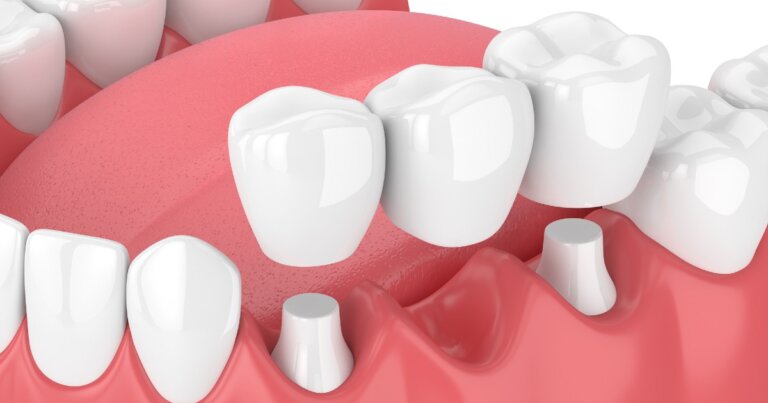Dental Bridge Home Care Instructions

What You Should Do After Receiving Your Dental Bridge
A Dental Bridge, also known as a fixed partial denture, helps restore your smile by filling the gap left by one or more missing teeth. Proper care after receiving your dental bridge is essential for a smooth recovery and long-lasting results. Follow these post-care tips to maintain your new bridge and overall oral health.
Oral Hygiene
- Brush at Least Twice a Day: Make sure to brush your teeth at least twice a day, ideally after meals. This helps prevent plaque buildup around your dental bridge and neighboring teeth. Using a soft-bristled toothbrush like the Curaprox CS5460 Ultra Soft or an electric toothbrush such as the Philips Sonicare ProtectiveClean 6100 can enhance your brushing routine.
- Rinse When You Can’t Brush: If brushing isn’t possible after a meal, rinse with water or mouthwash to remove food debris. We recommend Crest Pro-Health Densify Anticavity Fluoride Mouth Rinse to reduce cavity risk around your bridge.
- Floss Daily: Flossing is crucial for cleaning areas that your toothbrush can’t reach, particularly around and underneath your bridge. Use Oral-B Super Floss to keep your bridge and gums healthy.
- Use a Water Flosser: Consider adding a water flosser like the Waterpik Aquarius to your routine. It’s an excellent tool for flushing out debris that floss may miss, helping you maintain a cleaner mouth.
- Use High-Fluoride Toothpaste: Opt for a toothpaste that contains high fluoride to protect your teeth from cavities, especially around the dental bridge. We suggest Colgate PreviDent 5000 ppm Booster Plus.
Food and Eating
With a permanent dental bridge, you can eat most foods as you normally would. However, it’s best to avoid sugary foods and beverages that could increase your risk of cavities around your bridge. Limit intake of sodas, candy, and sweet syrups to protect your dental work.
Managing Numbness After the Procedure
You may experience numbness from the local anesthetic for up to 2-3 hours after the procedure. During this time, avoid eating hot foods or drinks and be cautious to not accidentally bite your lip, cheek, or tongue.
Jaw Discomfort
It’s common to experience temporary difficulty in opening your jaw or mild discomfort after local anesthesia. This condition, known as myogenic trismus, should improve on its own, but if needed, consult our guide on how to manage trismus at home.
Pain, Sensitivity, and Swelling
Mild sensitivity to hot or cold is normal and should subside within a few days. Using a toothpaste like Sensodyne Rapid Relief can help ease sensitivity. For pain relief, over-the-counter pain medications like ibuprofen (Advil) or acetaminophen (Tylenol) are effective. Consult your dentist for proper dosage recommendations, but a combination of 1000mg acetaminophen with 600mg ibuprofen every 4-6 hours is a common option for managing discomfort.
Regular Dental Checkups and Cleanings
Routine dental visits are essential for ensuring the health of your bridge and surrounding teeth. We recommend a dental cleaning every six months and an annual checkup. If you notice that your bite feels uneven or the bridge is uncomfortable, reach out to us for a free adjustment.
Have Questions?
If you have any concerns or need more information about your dental bridge, don’t hesitate to contact us. We’re here to help you maintain a healthy, beautiful smile.

